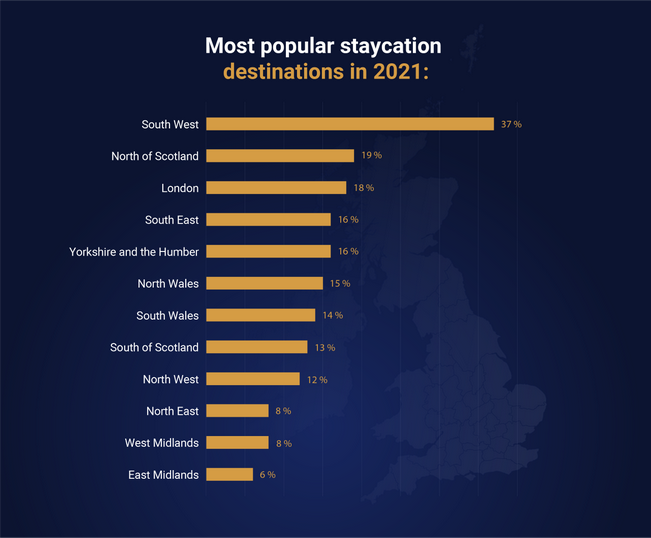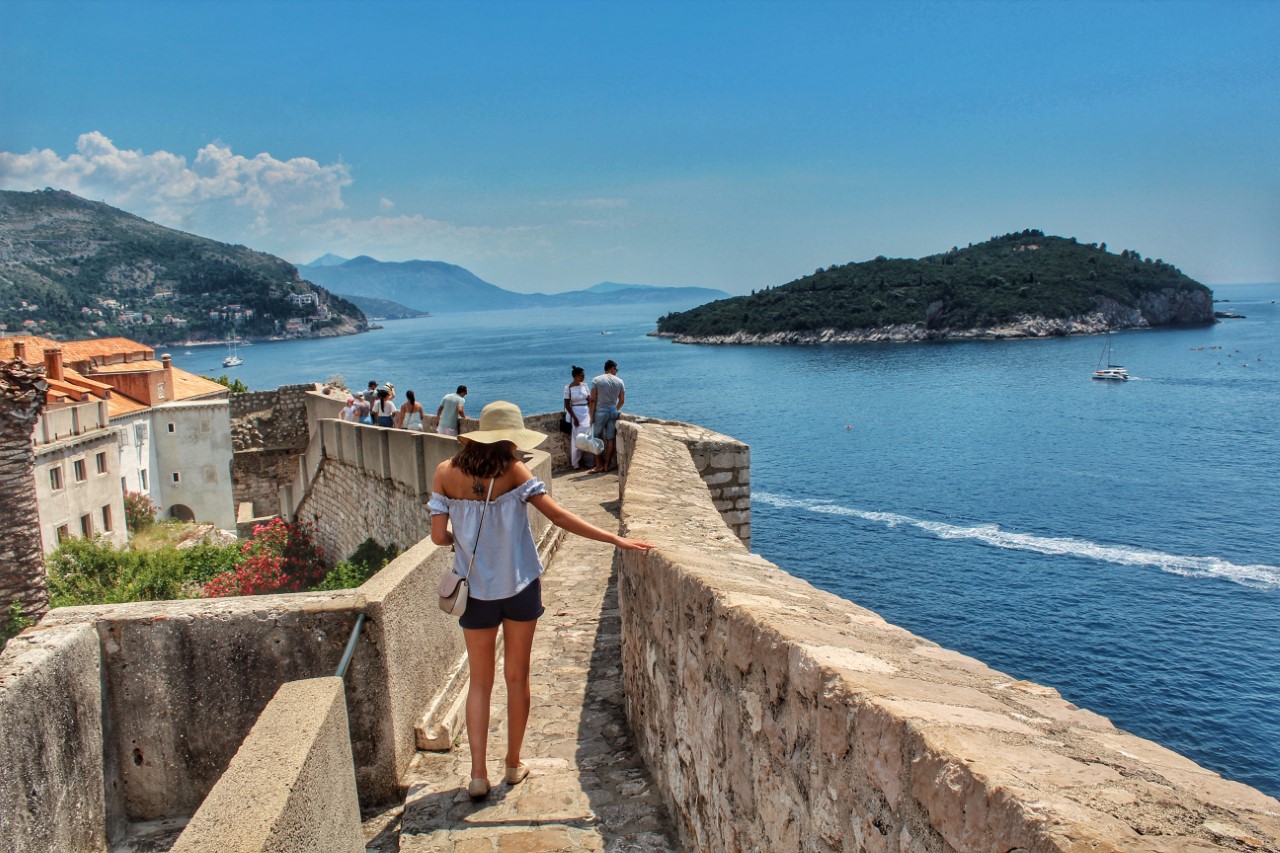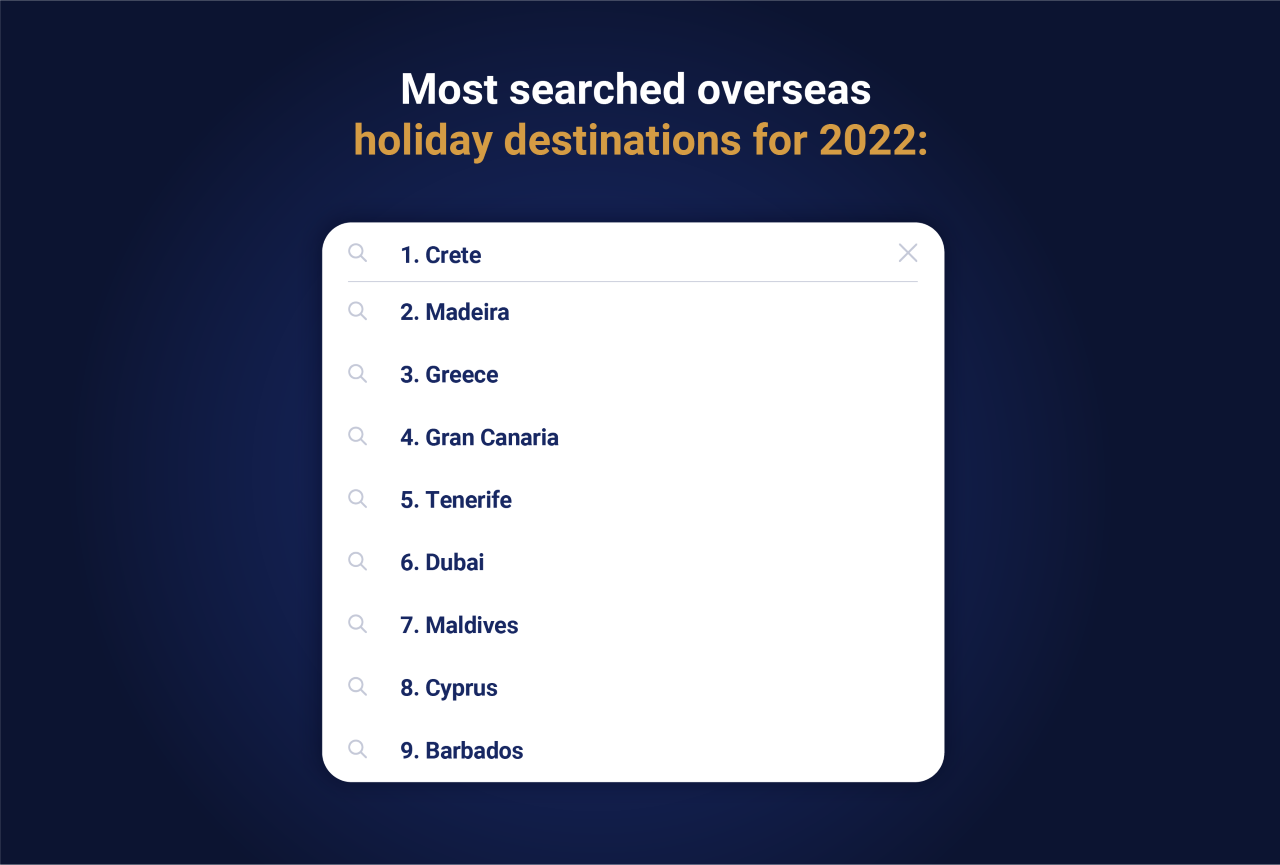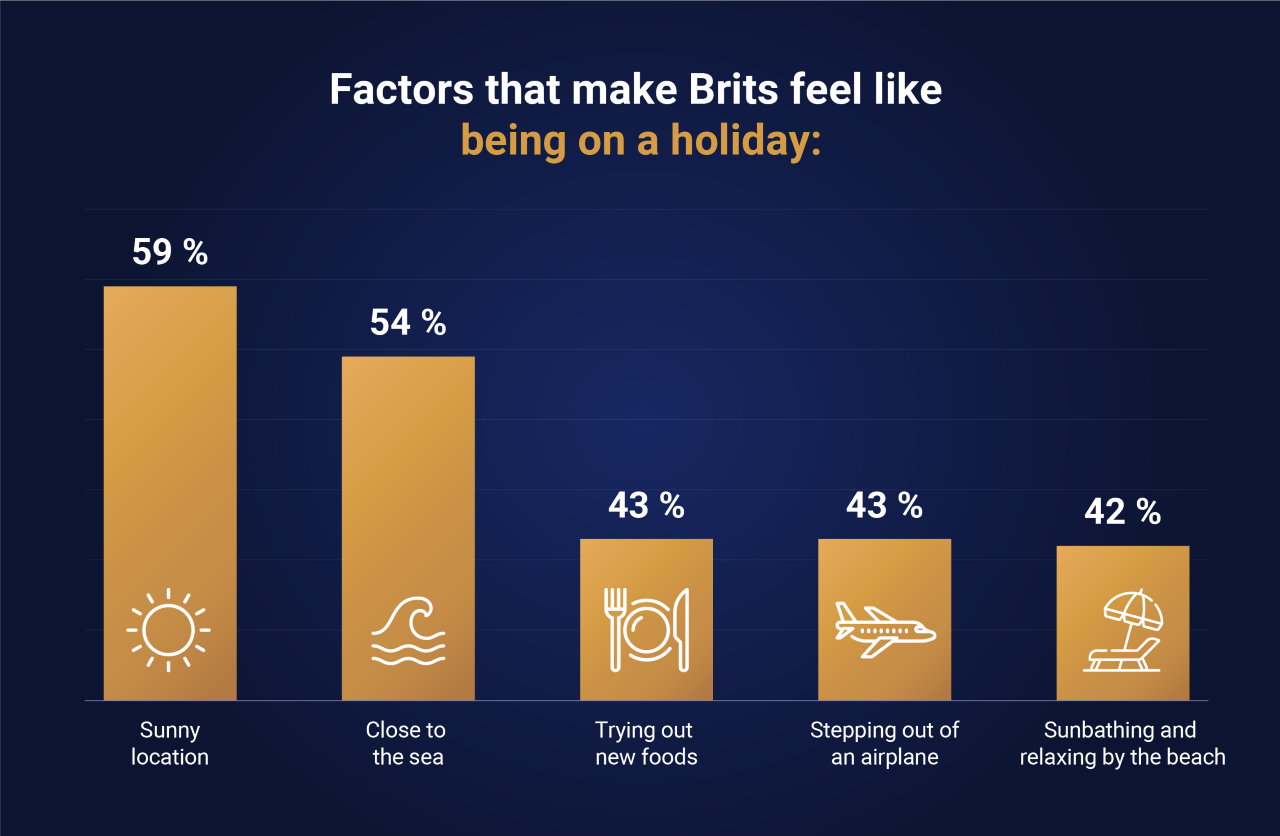2021 was a mixed bag (or should we say ‘suitcase’) when it came to travel. In the beginning of the year, Brits found themselves in a tight lockdown once again, making foreign travel all but impossible. By the time overseas trips were permitted again, the fast-changing traffic light system made it confusing and expensive. It really is no wonder that as a result (like in 2020) Brits embraced staycations and all the wonderful locations close to home that they didn’t manage to see the previous year.
Now, as we’ve left 2021 behind us and stepped into the new year, we wanted to have one final look at the travel year of 2021. Which foreign countries could Brits visit? Which were the most popular staycation spots? How do travellers and experts see the future of travel in this year and beyond? Answers to these questions, as well as many others, are right here in our 2022 Travel Report.
In the end of 2020, Brits didn’t feel very optimistic about the possibility of travelling anywhere any time soon. In a survey conducted between October and November 2020 by YouGov, a third of Brits said they weren’t planning to travel at all in 2021. A little over 40% said they were going to plan a domestic holiday only, and the remaining 30% were going to stick with their holiday plans abroad.
Across both of these groups, the most popular holiday type was a short city-break (77% of responses) followed by a sightseeing or an active holiday (64%). 56% of the survey participants were keen on having a beach holiday.
Of course, there was something else that could potentially have had an impact on travel to and from the UK at the beginning of 2021: Brexit. However, as Brits can still travel with their passports to EU countries relatively normally, d the impact of Brexit on enthusiasm to travel was low in comparison to that of covid.
What was stopping Brits from travelling abroad? Perhaps surprisingly, the biggest reason Brits couldn’t travel wasn’t British government travel rules. Only 52% of the YouGov study respondents said that this was their biggest barrier to travel, as opposed to 64% who chose quarantine protocols at home and away as the biggest barrier to travel. The third biggest barrier to travel was a tie, with each reason getting 47% of responses each. These were other travellers not sticking to the guidelines and the cost of covid tests. Concerns for the respondents own health took the last spot, with only 34% of respondents considering it a barrier.
Furthermore, nearly 40% of Brits said they would patiently wait for their jabs before going on a holiday either in the UK or abroad.
The British government made their first announcements regarding lifting the strict travel ban in the early spring of 2020. The uncertainty of the situation was, however, still discouraging. 28% of the 6,000 Brits taking part in a YouGov study wanted to delay their travel plans. Most of the respondents (over 40%) were going to do what so many of us did last year: just enjoy a staycation at home.
The UK offers many wonderful domestic holiday spots, from the Scottish moors to its picturesque coastal towns. According to a study from July 2021, these domestic destinations were the most popular staycation spots in 2021:

Locations such as Cornwall, the Lake District and Devon especially enjoyed a surge of visitors, as stated by multiple surveys and studies.

Despite the uncertainties, the announcement in early March regarding when lockdown would end was finally a sign for many to start preparing their holiday plans. Interest in the Google search term “book holidays” peaked. Many travel companies reported an overnight three-digit growth in enquiries, website searches and bookings.
Which foreign countries were on the wish-list? According to YouGov, old British favourites such as Spain, Greece or Italy were as popular as ever. Those who were keen to get further away searched for trips to the Maldives, Mexico, Bali, Dubai and Thailand.
The strict ban on foreign travel was finally lifted on the 17th of May 2021. Unfortunately, it didn’t offer the relief that many Brits had hoped for. The first list of “green countries”, which would allow Brits to return home without a quarantine period or expensive PCR tests, was initially only 12 countries long. It also didn’t contain any typical holiday destinations - or when it did, they were countries like Australia and New Zealand, which weren’t letting tourists in.
Thus, the only green country deemed suitable for a holiday, Portugal, became the dream destination. Bookings by Brits soared. This happened to almost every single holiday destination as soon as they were added to the green list. When Croatia made the list in the middle of July, the number of searches for a holiday under the Croatian sun increased by 200%.
This is not surprising, as Croatia is normally a popular holiday destination among the UK travellers. Naturally, Brits were quick to seize the opportunity to visit Croatia again, and by the end of November 2021 almost a quarter of a million Brits had visited Croatia - an increase of 83% from 2020. This was largely helped by the hygiene measures put in place in the tourism sector very early on, and by Croatia being one of the of the first European countries to scrap the quarantine requirements for fully-jabbed visitors.
After the summer came the autumn, and winter holidays were fast approaching. Unfortunately, the colder temperatures were accompanied by a rise in UK covid cases. This cast a shadow over future travel plans, although some were able to stay more optimistic than others. The younger population seemed more risk-aversive, as 40% of those aged 25-34 said they were going to take a holiday in the next 12 months no matter what. For the over 55 years-olds the number was 30%; and 24% of them didn’t plan to travel at all – home or abroad – within the next year.
Where was the destination of choice for those who were keen to take off? Yahoo researched the search habits of the Brits in the end of 2021 to reveal the most popular travel destinations for the new year:

Brits are definitely on the lookout for the sun and the sea in 2022! We’re not surprised, either. According to a survey, it’s the sun, sea and beach that give Brits that “holiday feeling”:

However, this doesn’t mean that Brits will be abandoning their homeland in 2022. Staycation will... well, stay. After all, if there’s anyone who can find sun and sea in the UK, it’s the British. In 2022 the most popular domestic holiday destinations seem to be similar to those of 2021: Yorkshire, Cornwall and the Lake District. Research also shows that demand for pet-friendly holiday locations and accommodations is on the rise, with 40% more staycations with pets in 2021 compared to 2019.
Ultimately, travel-lovers are looking forward to stepping on a plane again. Travelling has been found to play an important role in people’s mental and physical health. 49% of people surveyed by the British travel association Abta said that pandemic-limited travel opportunities have made holidays even more important to them. The number was even higher for families with children over five (65%).

Travelling will never stop; it will just take on new shapes and forms. We will keep on exploring new countries and cities, even when we must stay in our own regions to do it. Corona has shaped travel tremendously, maybe even forever. How do travelling experts and the UK travellers view the future of travel?
According to an extensive report done by Abta , as well as interviews with travel experts by The Times, these are the major trends in travelling for the coming years from the UK perspective:
The lack of travel opportunities over the past two years has created a greater demand to get out and about. That demand is expected to burst out in the form of holiday spending: experts predict that we will not only spend more on travel, but also on making the most of holidays once we’re there. In fact, 46% of Brits say that they’re willing to spend more on their post-pandemic holidays than they did on pre-pandemic travel. We can thus expect people to upgrade their rooms or to book more luxurious accommodations in the future.
Tastes are also turning more exotic and adventurous. 37% of the respondents to Abta’s study want to visit a country they’ve never been to before, which is an increase from 32% in 2020. The interest in long-haul destinations such as the Maldives, Bali or Mexico shows that Brits want to catch up on lost time by travelling a greater distance.
Adventurous destination choices aside, safety and security when travelling will remain important factors. 47% of Brits want the help of travel agencies in navigating covid related rules and regulations. The second most important reason for choosing a travel agency is the security of a package holiday. In fact, holidaymakers are 27% more likely to book a package holiday now than they were before the pandemic, mainly for the financial protection (39%) and the all-inclusivity (37%). Overall, Brits are around 30% more willing to utilize the services of travel agencies now than before the pandemic. Interestingly, 66% of people between 18 and 24 years-old are keen on utilizing the services of travel agencies.
Lockdowns and travel restrictions haven’t only stopped us from travelling. They’ve also stopped many of us from meeting our friends and families. Whenever we could travel overseas during the past two years, we did it to see our loved ones. Over two thirds of the 16% of Brits who managed to travel abroad in 2021 did so to visit their friends or families. Now that borders to the USA are also open, and Australia and New Zealand are joining the trend, we can expect even more happy family reunions over the next few months. 26% of Brits are even looking forward to travelling more with the family again. Nothing makes you miss something like not being able to do it.
Sustainable travelling and holidaying have been gaining tremendous popularity over the past few years. It means both travelling in a more environmentally friendly manner but also for being more socially conscious in the foreign country. Younger consumers in particular are willing to pay more for more environmentally friendly accommodation or to volunteer for community projects abroad. Around a quarter of Brits would also favour domestic travel over travelling abroad to be more sustainable. They would also be willing to offset the carbon emissions associated with flying.
Of course, travellers not only want to travel sustainably themselves, but also expect travel companies to do their bit. The number of Brits willing to pay more for the services of an environmentally friendly travel company has doubled since 2011. 55% believe that the travel industry should operate more sustainably than it did before the pandemic.
Thanks to the need for remote work and the acceptance of it among employers, workationing became a new working trend. And even if we at some point could return to the office full-time, many of us don’t want to do it anymore. We’ve become so used to working comfortably from anywhere. 22% of Brits are saying they will utilise this option more in the future. Inspired by this new type of a traveller, many hotels are focusing on creating spaces that inspire these “digital nomads” and remote workers. Inspiration aside, if the hotels can provide good WiFi, a priority for a third of Brits, we’re happy to book.
Working remotely hasn’t come without consequences, however. In the past two years many of us have been sitting more in Zoom meeting and Facetime calls than in our entire lives before that. Our digital devices have helped us stay in touch with work colleagues as well as friends and families, but the “always on” mentality has also led to stress and even feelings of burn-out. Thus, 53% of travellers say they want to take time off from their devices and social media on their next trip.
Because our lives transferred online through the pandemic, holidaymakers are looking forward to digitally detoxing, at least while they’re away. This is, of course, good news. When we are finally able to travel to a new location, we should spend that time on experiencing it through our own eyes, and not through our phones. And after such a long time of social distancing we should give our travel companions and the people we meet on our holidays our undivided attention.
Overall, 2021 was a very eventful year in travel, and on occasion maybe even too eventful. Nonetheless, we’re excited to see how the journey continues in 2022.